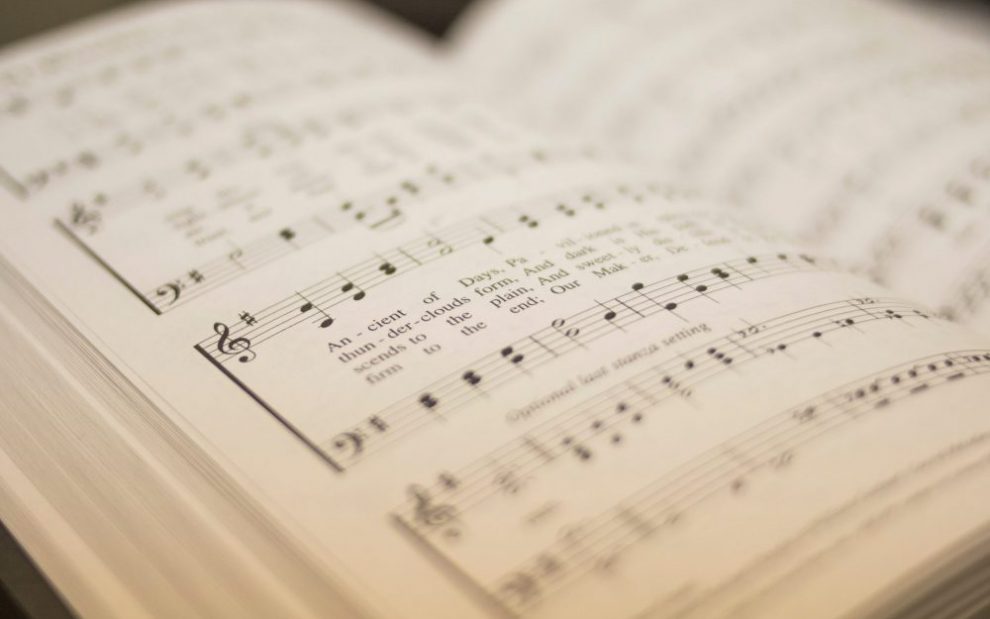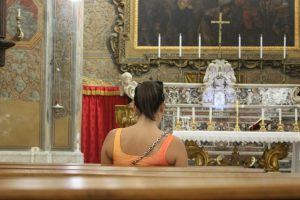As a young kid, I hated when my family and friends sang the “Happy Birthday” song to me. I never minded singing it for others. Yet when people sang for me, it made me feel awkward. Looking around and seeing people sing at me felt even stranger. I wondered: How do I respond? Do I sing along? Smile? Look at my cake? Yet joining others in singing made me feel in solidarity with them as we honored and expressed our affection for the person we were celebrating.
The question of whether Catholics have to sing at Mass reminds me of my birthday song conundrum. Perhaps sometimes we feel awkward like during the birthday song. Do we wonder how people will tolerate (or not) our singing voices? Do we wonder to whom the song is addressed or for what purpose we sing?
The Second Vatican Council teaches in Sacrosanctum Concilium (The Constitution on the Sacred Liturgy) that all who are present at Mass should fully and actively participate by rite of baptism. This participation makes Christ truly present in the celebration of the liturgy, in the same manner as he is present in the word, the sacraments (especially the Eucharist), and the celebrant. For as the United States Conference of Catholic Bishops says in “Sing to the Lord: Music in Divine Worship,” when the church prays and sings, Christ is present.
In our participation in word and song, Christ is revealed and made present to us. Our singing serves as a crucial part of the greater mystery we are celebrating: Christ’s sacrifice being united to the Father through the Holy Spirit. Why sing at Mass? To make this a reality!
We may not always be in the mood to sing. Perhaps our hearts are heavily burdened with fear and despair, especially in our current world, seemingly torn by strife, sickness, and racism. Again, in “Sing to the Lord,” the U.S. bishops speak well of our participation and the occasional challenges we face when singing at Mass: “Sometimes, our voices do not correspond to the convictions of our hearts. At other times, we are distracted or preoccupied by the cares of the world. But Christ always invites us to enter into song, to rise above our own preoccupations, and to give our entire selves to the hymn of his Paschal Sacrifice for the honor and glory of the Most Blessed Trinity.”
When the church prays and sings, Christ is present.
By our song, we raise our needs to God in a unique voice of prayer. Even when we are burdened, song can lift our hearts in a way that spoken words may not be able to achieve.
Despite the challenges of public worship in a pandemic world—including limitations on singing—may our prayer help us to open our hearts and feel less awkward, self-conscious, or reticent to sing at Mass. May we sing in solidarity with others as we honor and express our affection for the one who is made present in the Eucharist, in scripture, and in our song.
This article also appears in the April 2021 issue of U.S. Catholic (Vol. 86, No. 4, page 49). Click here to subscribe to the magazine.
Image: Unsplash/Laura Seaman















Add comment